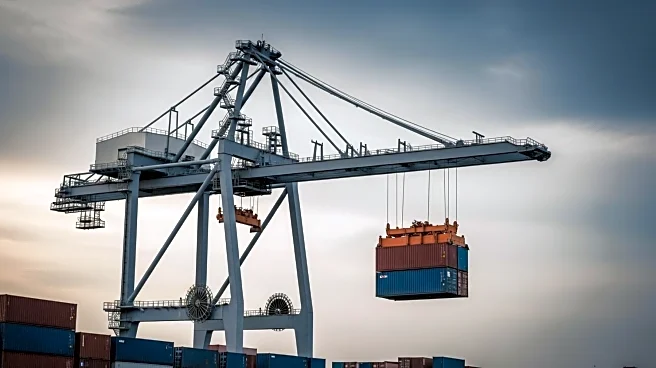What's Happening?
A strike by lashers at the Port of Rotterdam has halted containership operations, as workers demand higher wages and inflation protection. The union FNV, representing the lashers, has called for a seven percent wage increase, while the lashing companies have offered only four percent. The strike affects major terminals, including APM, Hutchinson, ECT, and Rotterdam World Gateway, disrupting vessel loading and unloading. The union has urged its members not to take over the work of the lashing company employees, emphasizing the critical role of lashers in port operations.
Why It's Important?
The strike at Europe's busiest container port highlights the ongoing labor disputes affecting global supply chains. The disruption in Rotterdam could have ripple effects on shipping schedules and logistics operations, impacting businesses reliant on timely deliveries. The demand for wage increases reflects broader economic pressures faced by workers, as inflation affects living costs. This situation underscores the importance of addressing labor concerns to ensure smooth operations in critical infrastructure sectors.
What's Next?
The strike is set to continue until October 10, with a general meeting scheduled for October 12 to discuss further actions. The union's demands for higher wages and inflation protection may lead to prolonged negotiations, potentially affecting port operations for an extended period. Stakeholders, including terminal operators and shipping companies, will need to develop contingency plans to mitigate the impact of the strike on their operations.
Beyond the Headlines
The strike raises questions about the sustainability of outsourcing labor-intensive tasks to third-party companies, as workers seek better compensation and working conditions. It also highlights the need for collaborative negotiations between unions, employers, and contractors to address labor disputes effectively. The situation in Rotterdam may prompt other ports to reassess their labor practices and wage policies to prevent similar disruptions.









